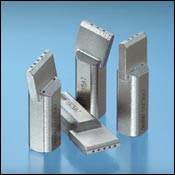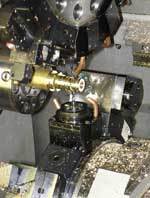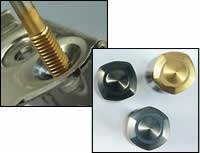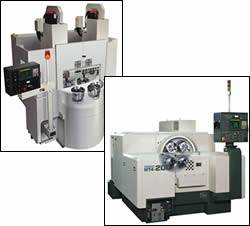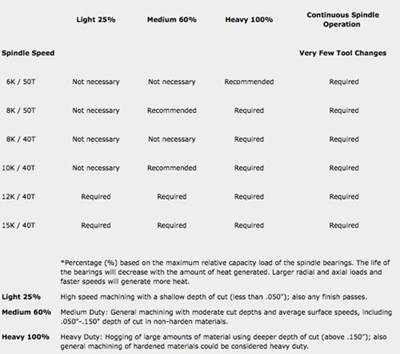Basics
Synthetic-Diamond Dressing Tools: Why Not Use Them?
Synthetic-diamond dressing tools are often a superior alternative to natural-diamond dressing tools for conditioning a grinding wheel. The reason is the consistency that the synthetic-diamond tools bring to the process.
Read MoreConsider L:D When Choosing A Lathe For Small Parts
Should shops always defer to Swiss-type lathes to process small, long and often complex parts? Not necessarily. As a general rule, a Swiss-type is most appropriate for machining workpieces with L:D ratios of 4 to 1 or greater. Parts with lower L:D ratios may be machined economically on turn-mills.
Read MoreWhen Cold Forming Threads Makes Sense
Recent tap geometry refinement and advances in coating technologies have made the chip-less, cold-forming operation suitable for a wider range of workpiece materials.
Read MoreTurn Your Home Into An Investment Profit Center
The key to successful tax planning is learning how to select the best tax-saving strategies to accomplish your specific goals. My job is easy: Pick the right strategies.
Read MoreSome Useful Measures Of Your Productivity
I am frequently asked for suggestions about how to measure a company’s productivity. In simple terms, productivity can be defined as the amount of output that is achieved when a specific amount of input is expended.
Read MoreWhen Four Spindles Make Sense
For the right applications, four-spindle CNC chuckers offer practically zero delay for part loading. That’s because two spindles can be loaded while the other two are making chips.
Read MoreWhen To Use A Spindle Chiller
Because conventional spindles on machining centers are typically designed with a fixed bearing preload (no springs), there isn’t any compensation for the thermal expansion that occurs from heat generation. Higher temperatures cause the bearing raceways to expand and tighten. This causes the bearing system to increase its preload beyond the original setting, which leads to increased axial and radial loading on the bearing system.
Read MoreUnderstanding Argument Assignment Number Two
With custom macro B there are two different forms of argument assignment for the G65 command to call a custom macro. By far, the more popular is argument assignment number one.
Read MoreUnderstanding Absolute and Incremental Compensation
Learning to manipulate absolute and incremental CNC compensation can not only extend the life of a given machine but also ultimately result in improved manufacturing flexibility, accuracy, and quality.
Read MoreWhy A Negative MPE May Be Very Positive
Specifications for metrology equipment are usually published in nice glossy brochures that have lots of great pictures highlighting all the features of the product. But specifications can be confusing and are often a hot topic of debate.
Read More
